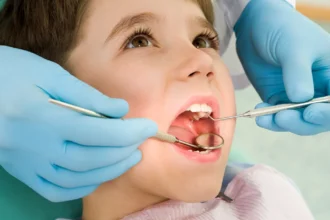Around 21 million Americans suffer from addiction. It is becoming more prevalent. Addiction is a disease, and just like most diseases, there are symptoms to watch for.
While not everyone has the same signs of abuse, there are some consistent ones. Substance abuse is known as a disease of denial, so you may need to watch out for your loved one instead of them coming to you for help.
If you notice some changes in someone, you may start wondering if these are signs of drug abuse or signs of a drinking problem. Check out these seven signs of substance abuse you should not ignore.
What Is Addiction?
Addiction is both the psychological and physical need to continue using a substance no matter how dangerous or harmful it is. Addiction is the relationship between a person with an object or activity.
As a person forms an addiction, the object or activity becomes more important than previously important activities or relationships.
Signs of Substance Abuse
When you are looking for signs of substance abuse, the first thing you need to do is look for disruptions in your loved one’s daily life. This will help you determine if they (or you) need help.
-
Changes in Behavior
The person may start showing a rollercoaster of emotions, including irritability and anxiousness. There may also be frequent mood swings. The person will be happy one moment and the next day appears moody and depressed.
They may seem angry when you ask them what’s wrong.
You may also notice things like confusion, paranoia, violence, aggression, and loss or ravenous appetite.
-
Financial Trouble
Another warning sign is financial trouble. Substance abuse affects a person’s behavior and they may not be able to think clearly.
Financial problems are common when someone is addicted because they may stop caring about their responsibilities and focus more on getting their substance of choice. This means the person spends more time and money getting this substance than working or using money responsibly.
Your loved one may start asking to borrow money more regularly or may start stealing things from around the house to pawn for money.
-
Differences in Physical Appearance
One of the biggest and most noticeable warning signs of addiction is physical appearance. These changes include:
- Bloodshot eyes
- Trembling hands
- Rapid weight loss or gain
- Bruises
- Poor hygiene
- Sweating
- Pinpoint pupils
- Flu-like symptoms
- Frequent nose bleeds
- Sunken eyes
- Rotted teeth
You should also watch for coughs. Other obvious red flags include the smell of alcohol. You may also notice a cigarette smoke smell as well because people with alcohol or drug addictions often start or increase smoking.
-
Problems in Relationships
Addiction causes other problems with relationships with people at school, work, and home. You may notice more fighting or more complaints from school or work.
If someone has an addiction, they may lose friends and family due to a lack of interest. The person may start becoming distant and start isolating themselves from these relationships.
If someone suddenly stops spending time with people they love, there may be a reason. If there is a legitimate reason they are no longer hanging out, the person should be able to explain.
Look for newly formed friendships with people that have similar habits. They may start hanging out with a new group of people. These people typically have a negative outlook on life.
-
Become Secretive
Addiction thrives on deception, dishonesty, denial, and deflection. Addicts go to great measures to make sure people don’t know what is really going on.
They will start keeping secrets and disappearing for long periods of time without any explanation.
You may notice they start hiding their text messages and phone calls. When you ask them about their habits, most likely they will be defensive and lie about what they are doing and who they were with.
You may find money starts missing with no explanation. Anything that seems fishy is a sign that something is wrong.
-
Loss of Interest
If the person stops doing things they loved and also abandons responsibility, this is a major red flag. As addiction progresses the person loses the ability to feel pleasure in a normal sense by doing things they would normally enjoy like getting together with friends, hobbies, or traveling.
The addict may start skipping out on school or work, missing family events, and even fail to pay bills. Their ‘old life’ is no longer a priority.
-
Start Doctor Shopping
People with medication addictions change doctors repeatedly. This is so they can get the drug they need when their old doctor runs out.
Drug addiction is not just for the young. This is a growing problem among the elderly as they start needing more medication. You may notice things like sleepiness, depression, falls, and memory problems.
The person may make excuses why they need to visit the doctor. If you notice your loved one is visiting the doctor more frequently, you should try to find out why.
Ways to Get Sober
If you notice these signs, you may want to get your loved one to treatment. They will need to be assessed to see which program is right for them. There are several options including outpatient or inpatient Florida rehab for addiction treatment.
Outpatient treatment offers treatment in a clinic that allows the person to go home after treatment. There are different levels of intensity based on the person. They include programs such as:
- Outpatient detox
- Medication management
- Individual therapy
- Group therapy
- Relapse prevention
- Ongoing support after treatment
Inpatient (or residential treatment) requires the patient to live at the facility during treatment. It is a good option for those that need to be away from current temptations and have fewer distractions.
Inpatient services offer close medical care, a safe recovery environment, support of other patients, therapeutic activities, family therapy, group therapy, and medical treatment.
You have to realize that you cannot go through recovery and treatment for your loved one. This is a choice they need to make, and you can be there for support during and after treatment. They will need your help.
It’s a Long Journey
Knowing the signs of substance abuse helps you get your loved one help. This usually begins with an assessment by a trained therapist. Recovery takes a lot of patience and time, and your loved one may not be receptive at first.
Substance abuse is a life-changing experience and all areas of recovery need to be addressed including physical, emotional, spiritual, and mental. Knowing when to get a person’s help is the first step.
For more advice like this, keep checking out our site for helpful information.















